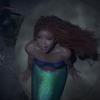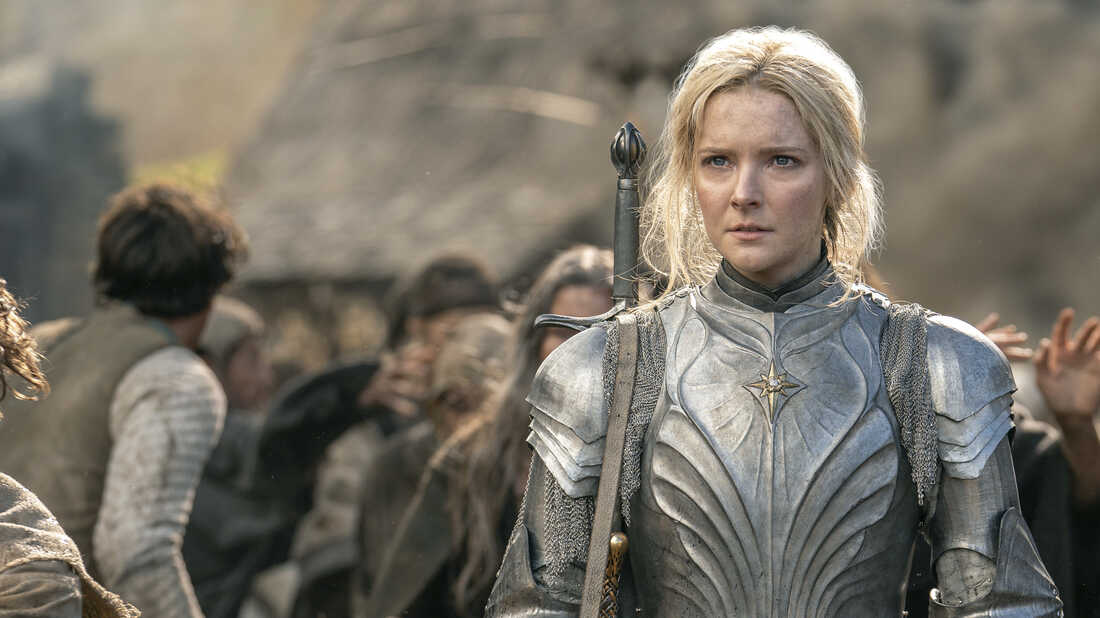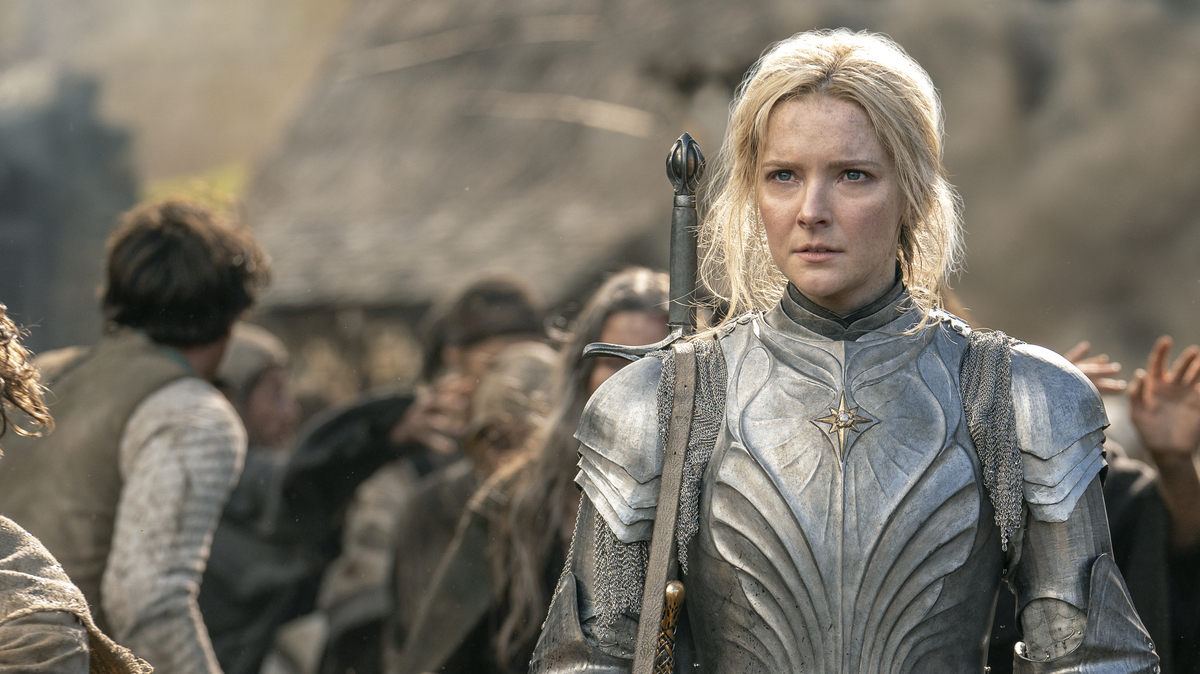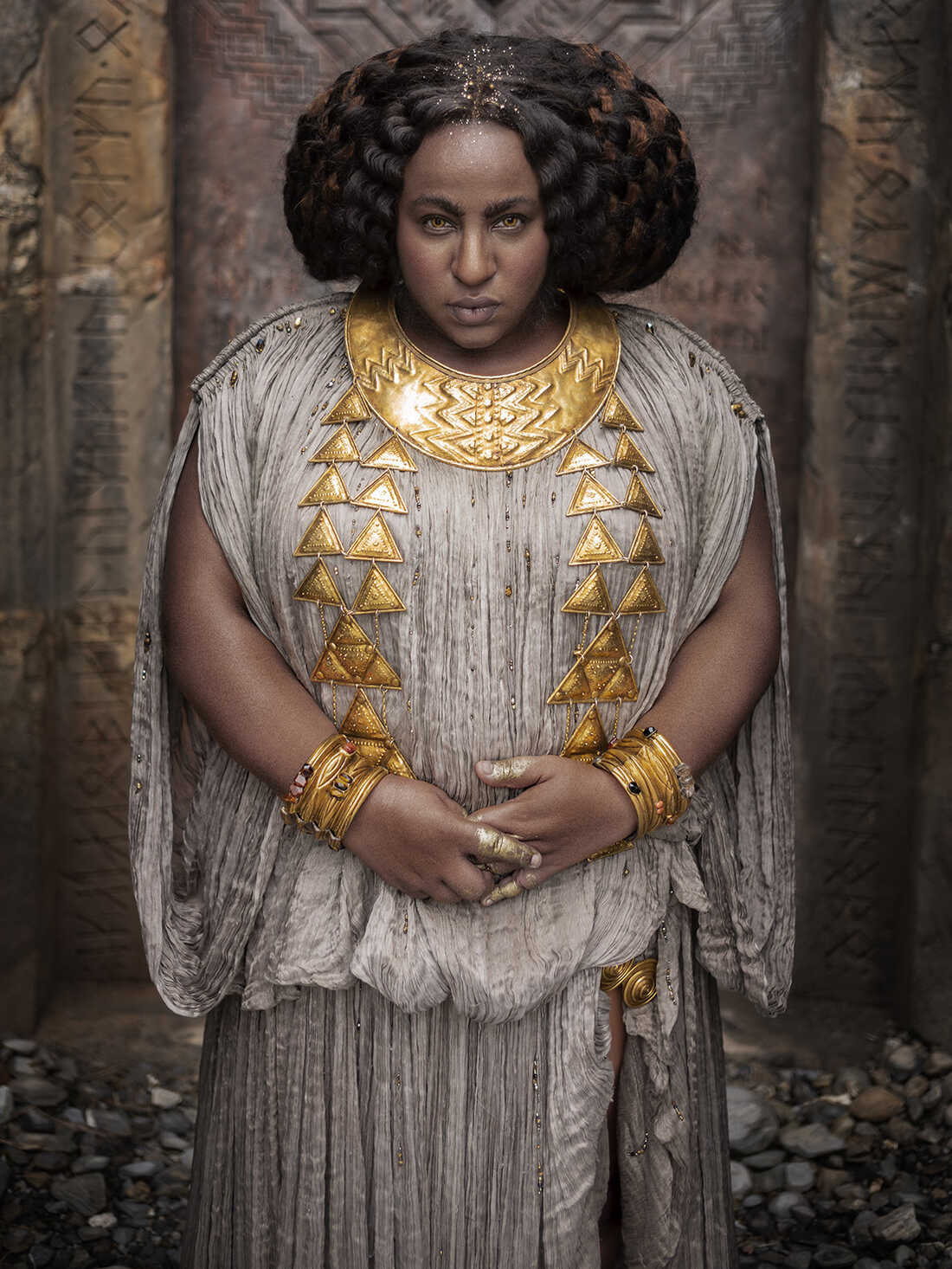Why Black characters in ‘Rings of Power’ and ‘Little Mermaid’ make fantasy better

Ismael Cruz Cordova as Arondir in Prime Video’s The Lord of the Rings: The Rings of Power.
Ben Rothstein/Prime Video
hide caption
toggle caption
Ben Rothstein/Prime Video

Ismael Cruz Cordova as Arondir in Prime Video’s The Lord of the Rings: The Rings of Power.
Ben Rothstein/Prime Video
My first reaction when I saw the email was exasperation: This is not a debate we should still be having in 2022.
The note popped up from a listener a few days after my review of Amazon Prime Video’s The Lord of the Rings: Rings of Power was broadcast on NPR.
“I was embarrassed for you about your review of Rings of Power,” the message read. The author contended that author J.R.R. Tolkien created the world the TV show is based on as mythology inspired by English history. “Your ‘discomfort’ at fantasy being at [sic] Eurocentric and white centered betrays a profound ignorance of the material and smacks of irrelevance and narcissism. The story isn’t about you and doesn’t have to be.”
I got similar feedback from a few sources on social media after my review was broadcast. In the piece, I admitted toward the end that the series still felt awfully white-centered to me, despite a few key characters portrayed by performers of color.
More recently, after the trailer dropped for Disney’s live action reboot of The Little Mermaid, racists complained about Halle Bailey bringing her Black Girl Magic to the role, making boneheaded hashtags like #notmyariel and #gowokegobroke trend on social media.
YouTube
Amid grousing about “white erasure” — as if white people are now or have ever been historically underrepresented in fantasy films — it all felt like a twisted version of the argument former Fox News Channel anchor Megyn Kelly once made when she insisted that the fictional Santa Claus was white. (Fun fact: that outburst was triggered by a column NPR colleague Aisha Harris wrote back when she worked for Slate.)
But as columnists and late night hosts craft their snarky insults about pop culture racism, it’s worth nothing why so many fans are reacting this way: the original works that they love were super white-centered in the first place.
And these ideas about who gets to stand at the center of pop culture sorely need to be challenged.
Talking honestly about race in fantasy TV
Frankly, as a Black TV and media critic who speaks out often on race issues, it’s not new to find some audience members severely triggered whenever the topic comes up. You can try to place your comments in perspective, but all they see is a beloved piece of media “tarnished” by the observation that it was created to elevate white culture in a way that should be interrogated and changed.
And the louder they complain, the more on-target the observation usually is.
My letter-writer noted that English author J.R.R. Tolkien created The Lord of the Rings universe long ago – The Hobbit was first published in 1937 – and based its world on medieval culture, arguing its white-centeredness is inevitable and appropriate. The message compared the franchise’s focus on white characters to the Black and brown-centrism of works like Hamilton and Roots.
Leaving aside the fact Roots is not fantasy, but a story that’s Black-centered because it’s about a real-life Black family — sigh — such reasoning seems to assume we’re talking about an evenly-populated pop culture landscape, where there is no need to compensate for the fact that so many iconic science fiction, superhero and fantasy stories over the years have reflexively excluded non-white character and cultures.

But read the stories highlighting how young Black girls reacted to seeing a non-white Ariel in a beloved children’s story, and you get a sense of how much power comes from seeing someone like yourself at the center of such a moving pop culture property.
And how damaging it is when people who look like you are rarely or never allowed in that spotlight.
That dynamic of enshrining beloved characters as forever white is the very definition of white privilege, communicating a sense of belonging and cultural domination that — if it isn’t challenged by multicultural casting — gets passed down from generation to generation as a mechanism of marginalization that stubbornly resists modern mores.

Of course, none of this logic has pre-empted the nonsensical arguments pushing back against multicultural casting that fill social media and the entertainment press.
Rings of Power star Ismael Cruz Cordova – a native of Puerto Rico and the first person of color to play a major elf character in a Lord of the Rings movie or TV show – says his email inbox has filled with a constant deluge of “pure and vicious hate speech” since his casting was announced two years ago. (Fortunately, actors from Peter Jackson’s Lord of the Rings movies and Cordova’s castmates on Rings of Power have also stepped up to denounce racist criticism of the new series’ multiculturalism.)
Predictably, there are those who want to slap a left/right political lens on the situation, decrying “woke politics” at work (it’s sad to see a term like “woke” — popularized by people of color describing how to make others aware of hidden and systemic oppression — turned into a demeaning catchphrase which short-circuits real thought and discussion).
Even Elon Musk weighed in, providing a criticism of the show that seemed more like a dog whistle to his tech bro fanbase. “Tolkien is turning in his grave,” Musk wrote on Twitter. “Almost every male character so far is a coward, a jerk or both. Only Galadriel is brave, smart and nice.” This comment, unsurprisingly, ignores Cordova’s character, who is also pretty heroic.
Almost every male character so far is a coward, a jerk or both. Only Galadriel is brave, smart and nice.
— Elon Musk (@elonmusk) September 5, 2022
But dunking on people who think a fantasy about elves, wizards and hobbits can somehow be made less “realistic” by casting some characters with Black and brown performers, misses an important part of this discussion.
These new visions of classic fantasy worlds and characters are simply a reflection of our new, more multicultural world. And that’s probably what most scares fans who are used to white-centered fantasy.
TV shows set in the past are often about the present
Beyond the race of specific characters, this fantasy world – and the other major TV fantasy franchise inspired by it, Game of Thrones – embraces an ethos which sees white as the embodiment of good and dark as the embodiment of evil, including and especially in living beings.
Elves, the immortal superheroes of Tolkien’s fictional universe, are blindingly white – blonde-haired, blue-eyed and fair-skinned champions of the light. Orcs, the misshapen foot soldiers of evil forces, are swarthy and dark, twisted into hideously horrifying shapes.

Morfydd Clark as Galadriel.
Ben Rothstein/Prime Video
hide caption
toggle caption
Ben Rothstein/Prime Video

Morfydd Clark as Galadriel.
Ben Rothstein/Prime Video
As I have written before, a film or TV show set in the past – even a fictional past, inspired by real life history – is as much about the sensibilities and attitudes of the time when that work is created as the time it depicts.
Which means that Tolkien’s original versions of The Hobbit and Lord of the Rings were wrapped up in pre-war and post war social issues – particularly, the evils of narcissistic authoritarianism (some experts have quoted from the author’s personal letters to show Tolkien, who died in 1973, was opposed to Nazism, anti-Semitism and Adolf Hitler). Peter Jackson’s white-centered films of Tolkien’s stories reflected the obliviousness about race that big budget Hollywood films could get away with in the early and mid-2000s.
Jackson’s films were also filled with British actors and characters speaking English with a British accent, furthering the idea that this fictional universe was just some slightly twisted vision of a medieval-era adventure tale — rather than a bold new landscape where the audience’s view of culture and heritage could be challenged.
Producers of the TV versions of Lord of the Rings and the HBO Game of Thrones spin off House of the Dragon are trying to figure out just how much of the world’s current attention to multiculturalism they can feature without upending the series. (In a previous column, I wrote about how the sociological dynamic called Group Threat Theory explains many of these negative fan reactions.)
Stuck in the middle are non-white fans with a simple question: Why can’t we equally — at long last — be a part of this universe, too?
Why doesn’t our exclusion feel inauthentic, given that some experts say non-white people have existed in Europe back to the Roman era? How does including a wider range of character types ruin a story which already features new characters and expanded storylines?

Sophia Nomvete as Princess Disa in Rings of Power.
Ben Rothstein/Prime Video
hide caption
toggle caption
Ben Rothstein/Prime Video

Sophia Nomvete as Princess Disa in Rings of Power.
Ben Rothstein/Prime Video
My arguments for such diversity don’t focus on fairness or equity — which are, nevertheless, laudable goals. I say that these casting moves actually improve the storytelling: potential roles are opened up to a wider range of talented performers, and writers have new depths to explore in future storylines, if they have the guts to try.
Will future stories explain why there are elves and hobbits of different skin colors? Does Ariel’s skin color matter in the world of this new Little Mermaid, and will the film explore why or why not? In Rings of Power, we see human prejudice against elves, but what other prejudices or cultural differences may be at work? Can any of those characters among the dark villains, the Orcs, move toward heroism or be redeemed?
It may sound like I’m asking a lot from these venerated works. But if the Game of Thrones prequel can spend time dissecting sexism in its world, surely they can find some space for racial issues as well. Now that producers have opened the door, they should take advantage of all the new storytelling opportunities they have created, echoing the debates underway right now in real life.
Placing a few actors of color in key roles doesn’t fully challenge the thinking that’s led so many fans to assume franchises like The Lord of Rings and The Little Mermaid should always be the exclusive province of white characters and white culture.
For all the latest Entertainment News Click Here
For the latest news and updates, follow us on Google News.
